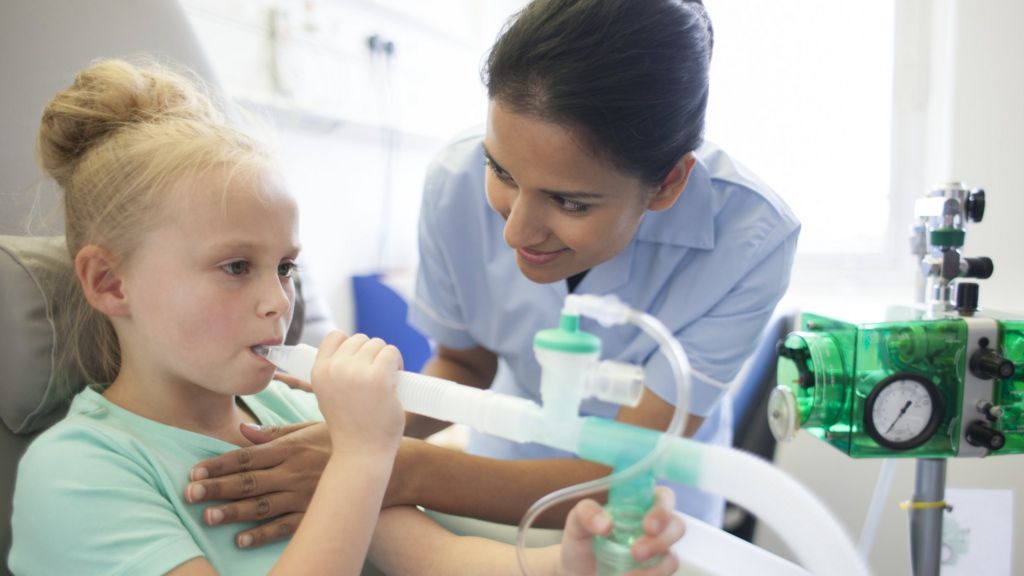People exhibiting symptoms such as constipation and persistent coughing should consult a pulmonologist at Kulsum International Hospital. The symptoms correlate with cystic fibrosis, which requires immediate medical attention. The condition can lead to multiple complications; therefore, it is essential to contact the specialist as soon as they notice the symptoms. The specialist will help conduct various tests to diagnose the disease.
Cystic fibrosis is a genetic disorder that hinders the functioning of the lungs and digestive system; due to excessive accumulation of mucus. Individuals diagnosed with cystic fibrosis can take treatment to manage the symptoms, but there is no permanent cure available for the condition. It is necessary to take the treatment, or the complication can be life-threatening.
What are the known symptoms of cystic fibrosis?
The symptoms of cystic fibrosis become noticeable in the early years of life. The symptoms of cystic fibrosis are:
- The patient suffers from constant coughing with sputum.
- The patient suffers from upper airway cough syndrome, in which there is an excessive buildup of mucus in the nasal mucosa.
- The person can notice changes in the skin. Additionally, the skin tastes like salt.
- The person suffers from sibilant rhonchus and sinusitis.
- The person struggles to breathe.
- The person remains inactive and lethargic and finds difficulty in exercising.
- Cystic fibrosis can cause male infertility and related problems.
- The person suffers from inflammation in the lungs due to infection.
- The person can notice a foul smell in the stools.
- The person has a low BMI and slow development.
- The patient suffers from constipation or diarrhea most of the time.
What are the known causes of CF?
The cause of cystic fibrosis is the mutation of the CFTR gene, which is responsible for controlling the flow of salt and fluids in the body. The malfunctioning of the gene causes excessive and think formation of the mucus, causing harm to the lungs and digestive tract.
What are the health risks linked with cystic fibrosis?
The complications associated with cystic fibrosis are:
The airways become damaged.
The person is prone to suffer from infection due to favorable conditions for microbes to grow.
The person is more likely to suffer from nasal polyps.
With time, the airway walls become thin, and the person becomes more prone to suffer from hemoptysis.
Due to damage to the lungs, the chances of respiratory failure increase.
What tests help diagnose cystic fibrosis?
The tests that help in diagnosing cystic fibrosis include:
- Sweat Testing: The test helps detect if the salt content on the skin is higher; it is more probable that the child is suffering from CF.
- Genetic Testing: The test detects gene mutation that caused the individual to suffer from CF.
What medications help manage the symptoms?
The medications to treat CF are:
- Use of Antibiotics: The medications help fight the infection and provide relief to the patient. Additionally, it promotes the functioning of the lungs.
- Use of Anti-inflammatory Medications: It helps reduce the swelling in the airways, promoting the oxygen supply. Additionally, the patient can breathe properly.
- Use of Mucus Thinners: It helps loosen the mucus, which the patient can easily cough out.
What surgical procedures and therapies are proven beneficial in treating CF?
The procedures that help treat patients with CF are:
- Bronchoscopy to suction the mucus out of the body.
- Transplant to replace the damaged organ with healthy lungs.
The therapies that help manage the symptoms are:
- Breathing exercise to get the mucus out and improve the breathing
- Oxygen therapy helps maintain blood pressure and supply for the lungs to function.
People diagnosed with cystic fibrosis must consult a pulmonologist. The specialist can help the patient understand the cause of the condition and guidance regarding the treatment options that are proven beneficial in managing the symptoms.



